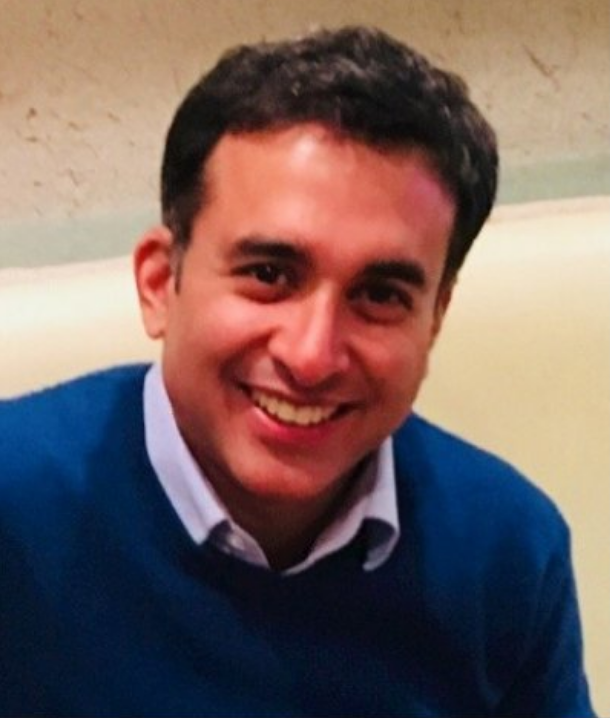We had the honour to interview Mr. Ashim Sood, one of the leading lawyers who took the case the crypto Ban in India in his hands and won the case.Take a look at what he has to say about his interest for Japan, Crypto and the case.
Interview Date :12th March 2020
An Indian Lawyer and his relation with Japan
I am a lawyer in India, and am dually qualified to practice both in India and in California. However, I primarily practice in India. I am a litigator and fight cases in India’s supreme court and before other Indian courts and international arbitration tribunals. I wouldn’t say that I specialize in cryptocurrency, but new age technology is something which certainly interests me, and litigation issues that are related to it are cases which I am very keen to do. My offices are in New Delhi. We are a small chamber but we do good work.

Ashim Sood
I started working with some Japanese clients who are fantastic to work with. Japan is a country that I am very attached to and I visit it a couple times a year. It’s a country that I love visiting so much, that I thought I had to find some good reasons to somehow manage to visit Japan after I started practicing my work, so I worked hard to develop clientele there. I have good Japanese lawyer friends now, including a couple from my days in law school in the US. I love Japanese food, and my friends always take me to a nice Izakaya when I visit. I am even learning Japanese in India, though my level is still too basic to say that I can speak it. Last year I came with my whole family including my mother, and we spent a lot of time in the whole of Japan.
Big Generational Gap
I don’t think that any lawyer in India is a crypto specialist. I was approached to lead the case in the Supreme Court by a lawyer called Jaideep Reddy from a law firm called Nishith Desai Associates. He knew that I specialize in Supreme Court cases, and also that I had interest in technology related work. He came to me, and explained that they have clients who are cryptocurrency exchanges, and they would like to challenge the RBI, the Reserve Bank of India, whose circular had brought cryptocurrency (especially exchanges) to a standstill in India. The Circular ordered all banks in India to withdraw bank accounts from anyone trading or otherwise dealing with cryptocurrency.
My first reaction was that it is the Reserve Bank of India that we will have to fight against in this case.The RBI is the right arm of the government and manages the economy and the monetary system here. So, a ban on cryptocurrency by them would really not be something that courts would be keen to review since courts are very careful to second guess an expert regulator on economic matters. Courts would usually defer to the reserve bank of India’s judgment on an issue like this, specially when a case comes prepackaged with a lot of myths, a lot of fears and biases. I thought that those fears and biases would cause the Supreme Court judges to be a little conservative with all due respect to them.
On one hand, there is a very revered, and highly respected Reserve Bank which says “trust us when it comes to the monetary system” So, when they say when something is bad, then it shall be considered as bad. On the other hand, there are these guys new tech-geeks who are really only saying that “cryptocurrency is not all that bad”. It was really a generational fight in a sense. I did not think that it would be an easy fight, and I remember telling our crypto exchange clients “ The Reserve Bank of India on one side, and on such a niche and largely misunderstood aspect: the Court probably isn’t really going to listen to us” However, our clients wanted to fight and ultimately we always went to court prepared to do our best for our clients.
“I have burnt my fingers with Crypto before”
We sat down, and we studied the impact of the circular. We realized that we did have some good grounds for a challenge. I also have some experience in cryptocurrency myself. I had been trading it in 2013, but actually lost all of my cryptocurrency because of the exchange that I was trading on suddenly shut down as it was a scam. After that I did not have anything to do with cryptocurrency by what of trading it or holding it etc., though of course I followed its progress out of interest. I am one of the ones who burnt his fingers, but in some senses that made me feel like some bad actors had been giving cryptocurrency a bad name. Even though that’s true for any activity around the world, it was instances like these that the Reserve Bank was really depending on to sway the court. I thought that we should fight that and that’s how it started 2 years ago.
Not having access to bank accounts, its a pure Ban
The circular came in April 2018, and we filed the case in May 2018. The case did not get heard until August 2019 because the court has a long list of cases they have to hear. Until they started hearing it, I don’t think the court thought that this case was a very important case, because they thought that the Reserve Bank had dealt with it already, so obviously they must have done the right thing in regard to cryptocurrency. There was certainly such an approach to the case.
But we had done our homework, we had stayed up long nights, gathered a lot of documents, and studied it a lot. We had to study the law, but also understand the technology deeper. I even watched nearly 20 hours of youtube videos trying to work out the simplest and most effective way to explain blockchain and cryptocurrency to people completely unfamiliar with the concept.
Our bench of Judges understood that all the Reserve Bank of India has done is not allowing anyone who is involved with crypto to be able to open an account. So, they had tried to ban something that even the government of India had not said is illegal. Restricting people from opening bank accounts effectively works as a ban. For an online business who cannot have access to bank accounts, it is a pure ban. You can’t do it in cash, and the court understood that.
We also explained that apart from this ban, there is no other ban on cryptocurrency in India. As a counter argument, the things that the ban was supposedly trying to do were protecting consumers from hacking, speculation, and they wanted to combat money laundering, and terror financing. However, none of those things were actually combated by this ban because people can just take their cryptocurrency off the exchange and trade them peer to peer. In that sense, this ban was making things worse.
Ashim Sood has significant experience in appearing as counsel for litigants in claims and defences in courts and arbitral tribunals in India as well as internationally. His expertise lies in representation before the Supreme Court; writs and original side litigation before state High Courts, and shareholder and commercial disputes before arbitral tribunals and the National Company Law (including Appellate) Tribunal. In 2013, the Singapore International Arbitration Academy awarded Ashim an “Excellence in Advocacy” award. Ashim was also awarded the prestigious HM Seervai Medal in Constitutional Law. He is qualified to practice in India and California.
Interviewer , Editor : Lina Kamada
【Disclaimer】
The Article published on this our Homepage are only for the purpose of providing information. This is not intended as a solicitation for cryptocurrency trading. Also, this article is the author’s personal opinions, and this does not represent opinion for the Company BTCBOX co.,Ltd.


